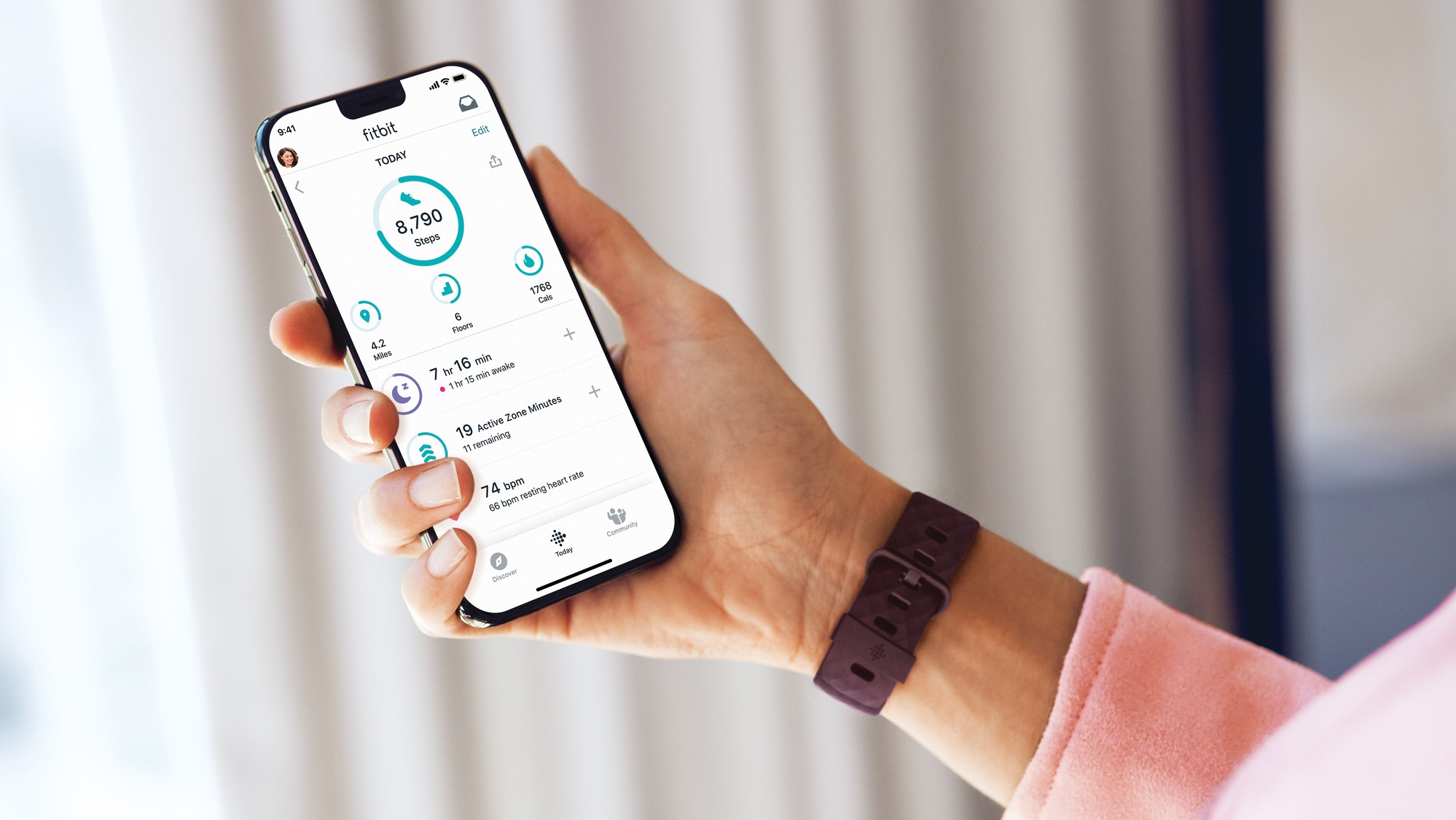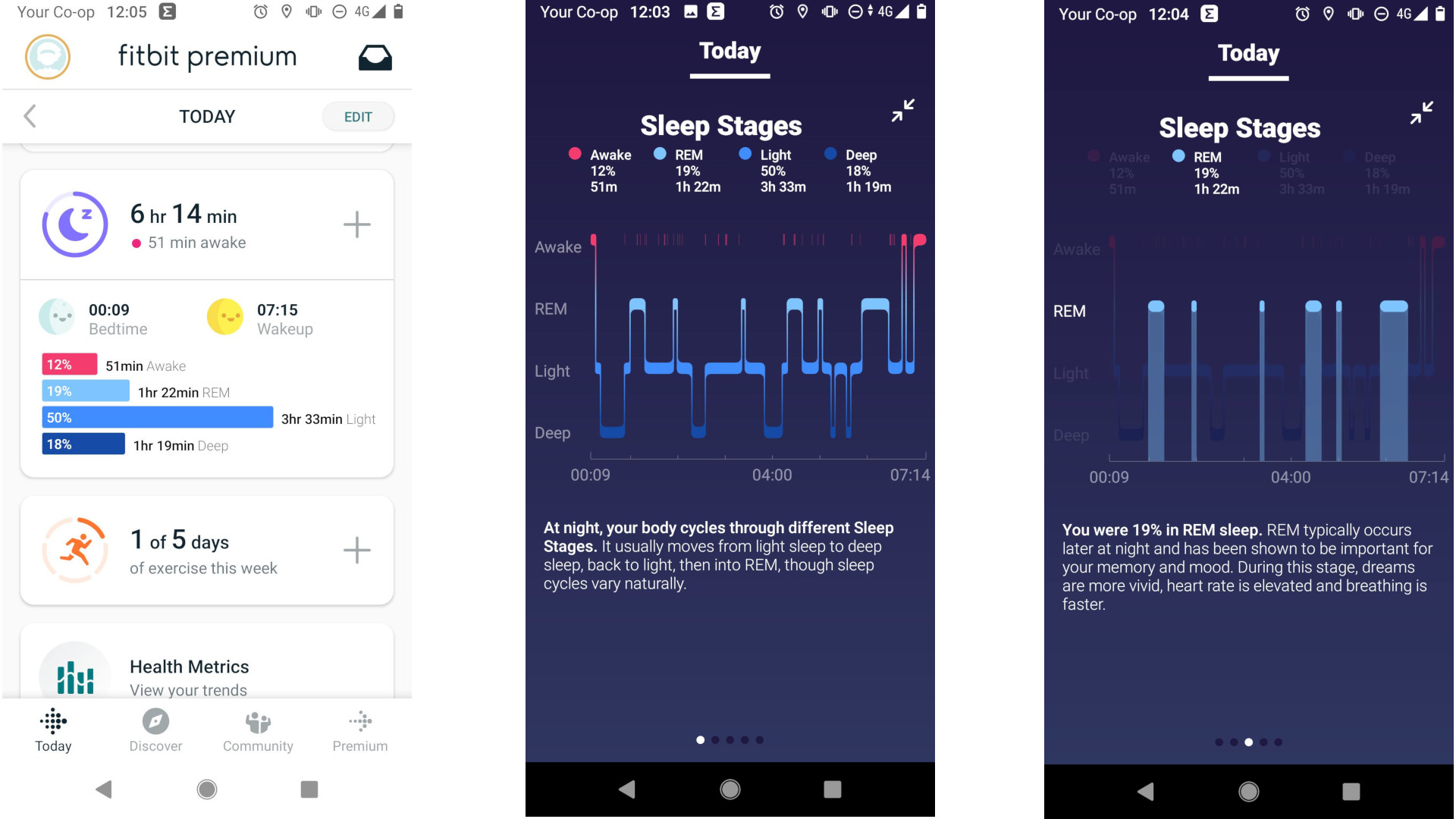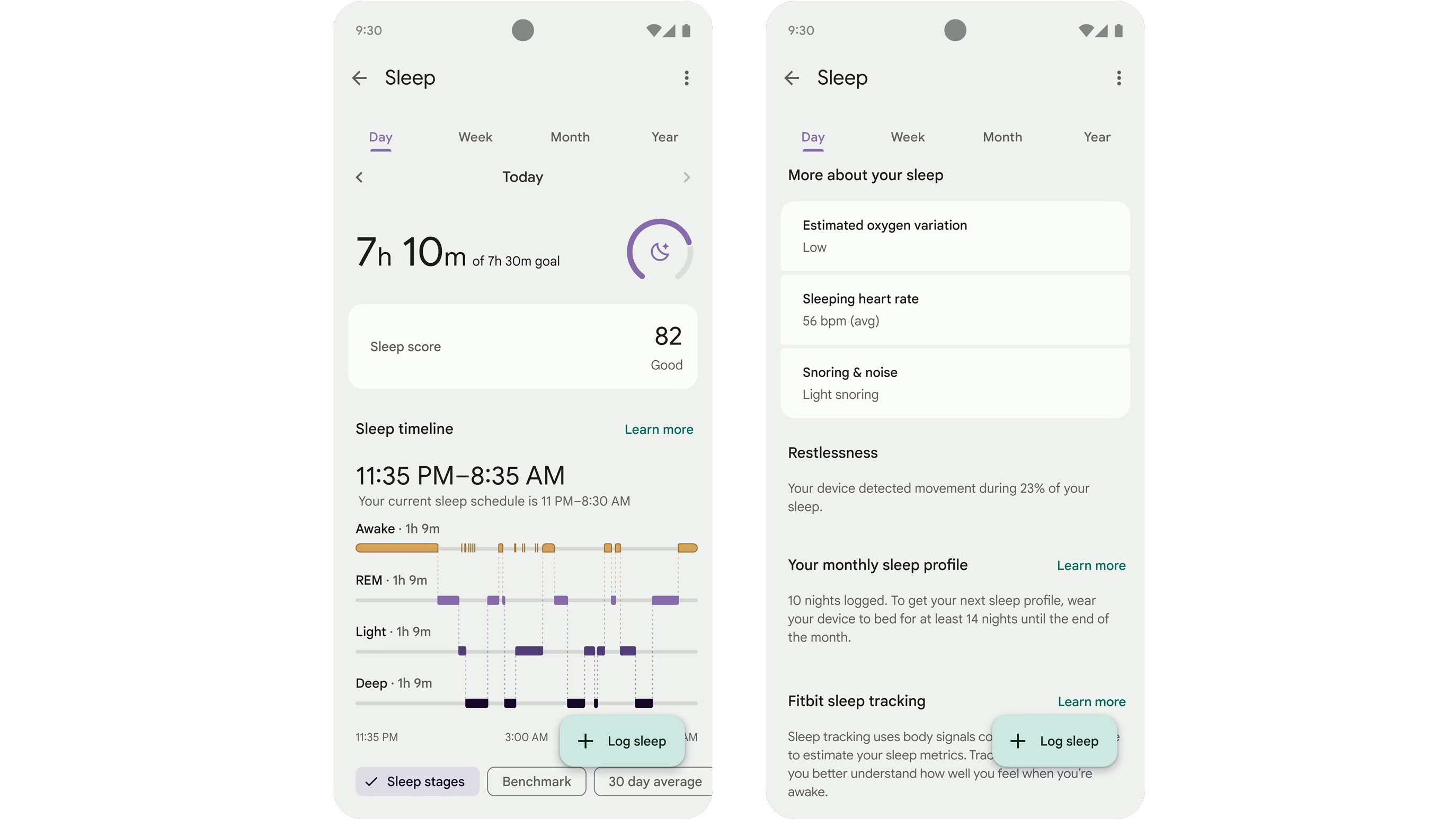Fitbit's redesigned its Sleep page to make it more useful: here's what's changing
Fitbit's new Sleep page comes with an interactive timeline

Sign up for breaking news, reviews, opinion, top tech deals, and more.
You are now subscribed
Your newsletter sign-up was successful
Fitbit has updated its Sleep page in the Fitbit app to make it more useful to its users, including new tools such as an interactive timeline of your night’s sleep and an easier way to track your sleep patterns over time.
The update comes on the heels of Fitbit’s overhaul to its entire app last year, which got rid of some community features and introduced a new structure. Now the partner app to the best Fitbits has three sections – Today, Coach and You – with the redesigned Sleep function falling under “today”.
Fitbit’s redesigned sleep tool allows users to hold and drag a finger or thumb across a timeline of their night’s sleep, showing them what stage of sleep they were at any given time. Stats like estimated oxygen variation and your sleeping heart rate are shown below this timeline, while separate week, month and year views show a clear bar chart of your sleep across these timeframes. This shows you how much sleep you’re getting (and missing) in a clear, concise way.
According to researchers from the University of South Australia, ‘sleep debt’, a term for repeated loss of sleep, “can accumulate over time, resulting in poor cognitive performance, increased sleepiness, poor mood, and a higher risk for accidents”. Fitbit has not stated this is the reason for some of the changes, but it’s certainly useful; being able to clearly see your sleep information at a glance over a month or year could tell you if you’re at risk of accumulating this sleep debt.
Below, you can see the old design compared to the new design in our gallery tool. The update to Fitbit’s sleep app is rolling out to all users now.


Analysis: Sleep will surely be a big focus this year
After the lackluster reception of its app redesign, these interactive sleep tools and longitudinal views actually look like pretty positive changes. It’s no surprise Fitbit’s getting its sleep house in order, as it’s about to face stiff competition in that arena.
Since last year, Samsung’s trackers have placed a big emphasis on sleep. The Samsung Galaxy Watch 6’s sleep tracking was excellent, with its chronotypes feature offering sophisticated, personalized advice based on your sleep habits. The upcoming Samsung Galaxy Ring will go one step further, offering a wellness tracker in a slender form factor that will be more comfortable to sleep in than a watch.
Sign up for breaking news, reviews, opinion, top tech deals, and more.
Reports of an Apple Watch 10 with extended battery life also indicates Apple could be stepping up its sleep game in a big way. While the best Apple Watches already track sleep, they are hampered by an 18-hour battery life and daily charging requirements. Getting the Watch up to 30 hours (not just the Apple Watch Ultra models) could be the key required to make it a force in this area.
You might also like

Matt is TechRadar's expert on all things fitness, wellness and wearable tech.
A former staffer at Men's Health, he holds a Master's Degree in journalism from Cardiff and has written for brands like Runner's World, Women's Health, Men's Fitness, LiveScience and Fit&Well on everything fitness tech, exercise, nutrition and mental wellbeing.
Matt's a keen runner, ex-kickboxer, not averse to the odd yoga flow, and insists everyone should stretch every morning. When he’s not training or writing about health and fitness, he can be found reading doorstop-thick fantasy books with lots of fictional maps in them.